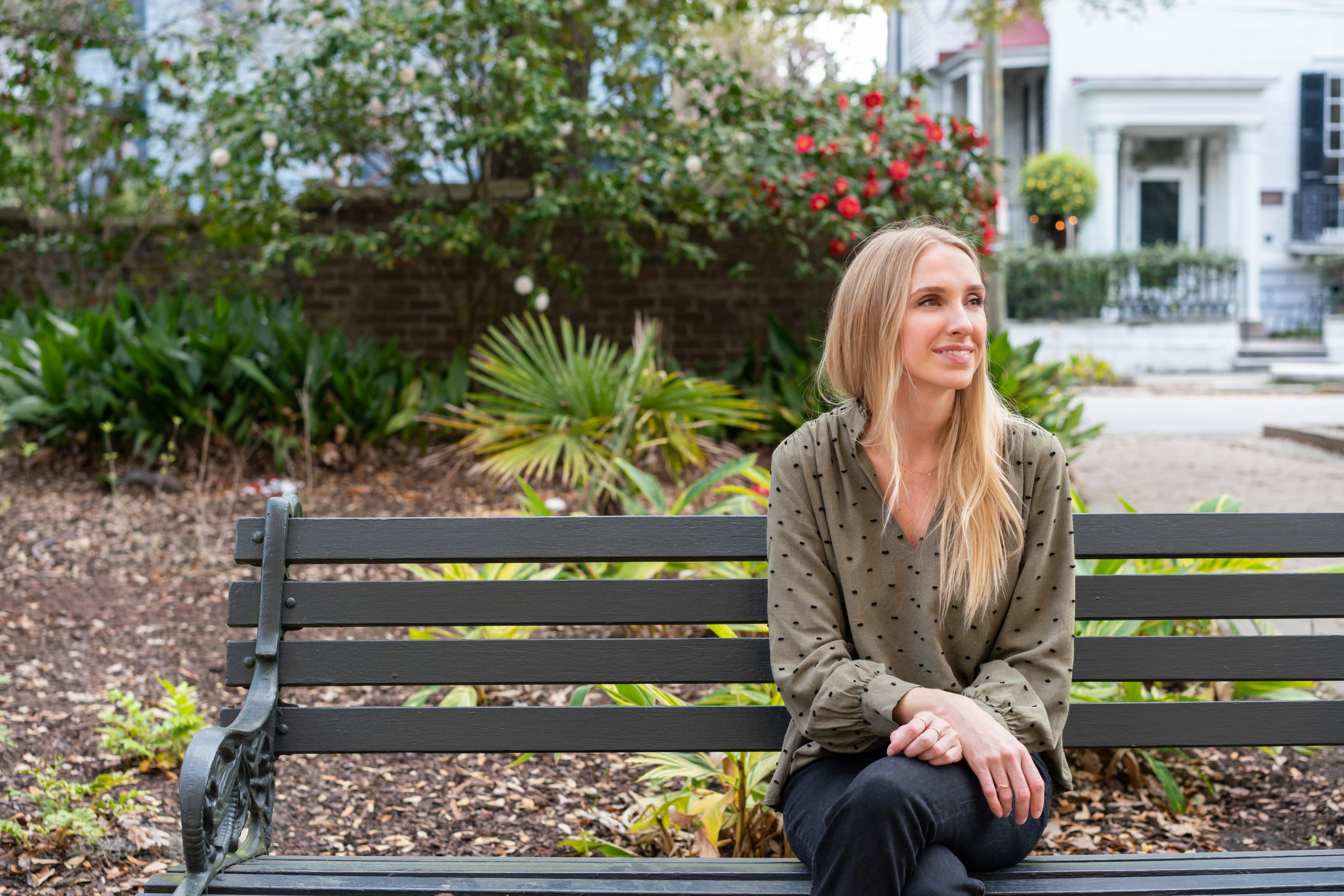Advice from MPS Art Therapy Alumnus Katie Hinson

Art therapist Katie Hinson working with young child. (Note: This photo was taken prior to the Coronovirus outbreak. Masks are desperately needed by medical professionals now and should be reserved for their use.)
Times of uncertainty require as much stability as possible. With this in mind, we reached out to alumnus Katie Hinson (MPS 2010 Art Therapy) to ask for her advice about how to cope with this new post-Coronavirus reality of anxiety, isolation and quarantine. Katie is currently the manager of Art in Healing at the Medical University of South Carolina and she was kind enough to offer some helpful tips for mindfulness and staying healthy during times of instability.
During this challenging time, everyone is experiencing a rush of emotion, including, but not limited to, anxiety, fear, anger and confusion. These feelings are entirely normal. Although we're dealing with a number of restrictions, there are many ways to adapt and remain mindful of our physical and emotional well-being.
- Stay in touch. Just because we cannot see family and friends in person doesn’t mean we should disconnect. Call or text; video-chat a friend you haven’t seen in a while. Message someone via social media that inspires you in your network. There are also many online party and streaming platforms popping up to pull us out of complete isolation. It's imperative to seek out community and social connections during this time.
- Stay informed, but take breaks. Repeatedly watching, reading, or listening to news stories, checking the increasing number of cases in your community, and checking social media can have a huge effect on your mental health. Outside of needed preparations and taking necessary precautions, there is little that we can do but know that strong feelings will pass. Also, remember that rumors are circulating about COVID-19—please check sources when you receive information.
- Take care of your body. Meditate. Take deep breaths. Try an online yoga or pilates class. We’re in the midst of a pandemic—it is essential to eat healthy food, exercise and be well-rested. Taking care of your body is also extremely beneficial for your emotional well-being.
- Work on a personal “passion” project. It’s essential to keep your brain focused and curious during this time. If you don’t have a project in mind, use this time to find one. There are many musicians, museums, etc. inviting you to listen or view their work virtually for passion-project inspiration. Have you always wanted to learn French? There are free platforms to learn new skills [including Mango, available through the SVA Library].
- Grow your brand. If you freelance or are thinking about doing it, there are a number of platforms highlighting grants and funding to help you. Research opportunities with needed priorities in mind such as cash, resources or mentorship. Financial burdens and anxiety have a significant impact on your well-being and you may feel lost. Still, there are plenty of surprising opportunities waiting.
Crying, bursts of anger, changes in appetite, losing interest or ability to concentrate, difficulties sleeping, feeling hopeless and avoiding friends and loved ones for several days or weeks may be signs that you or a loved one isn’t coping well. If these signs of distress are present, please reach out to the SAMHSA hotline for assistance at 1-800-985-5990.

Katie Hinson

